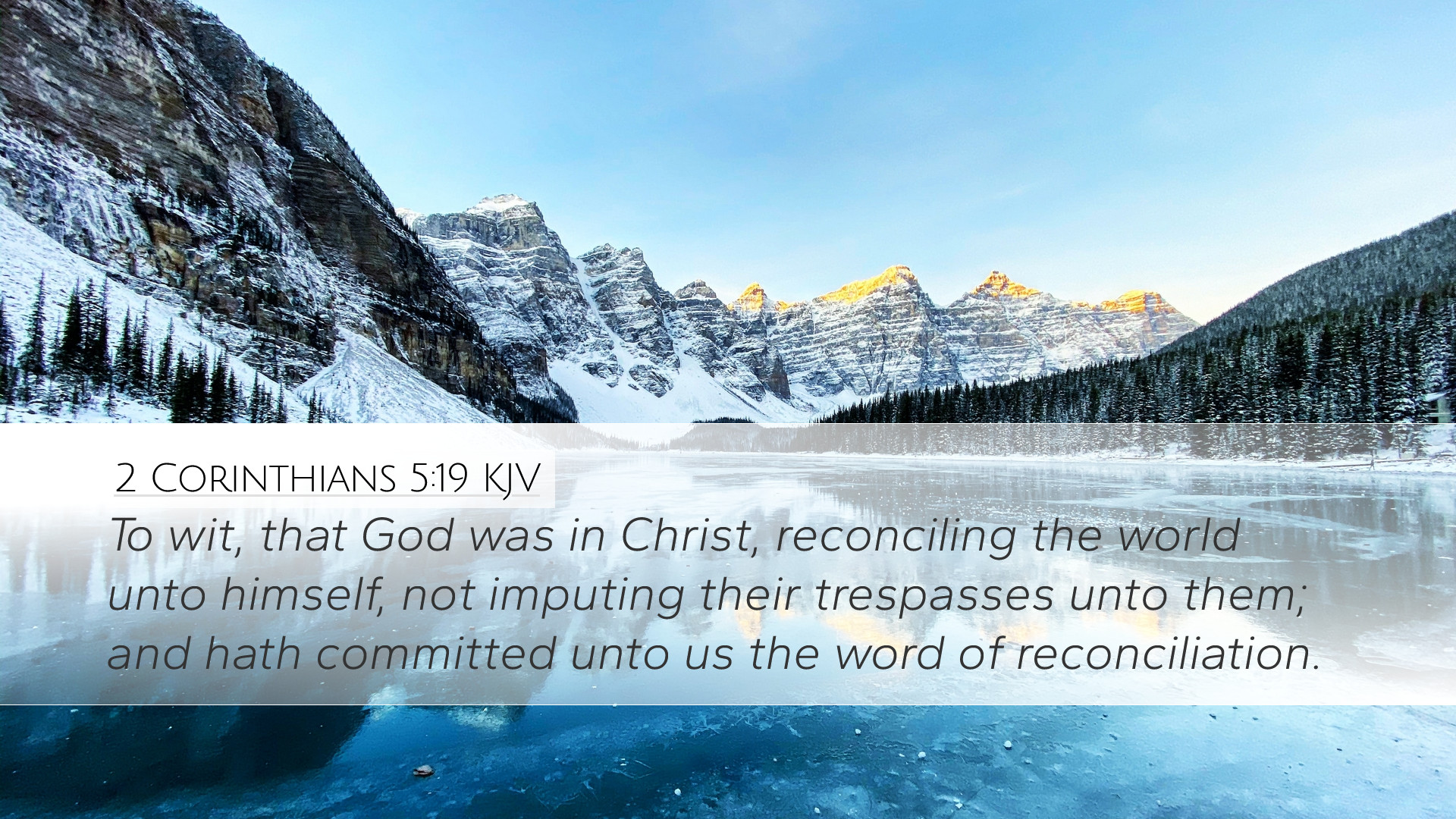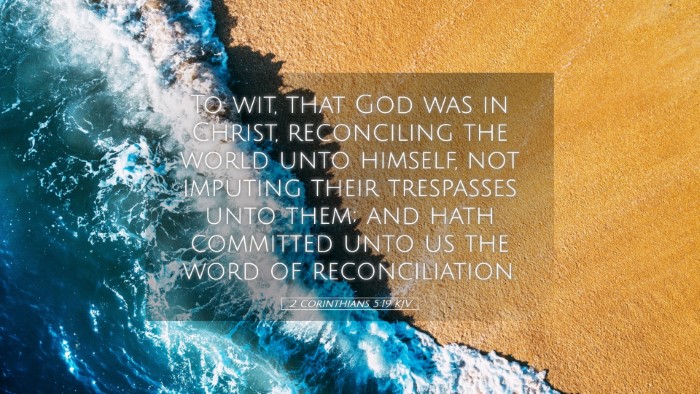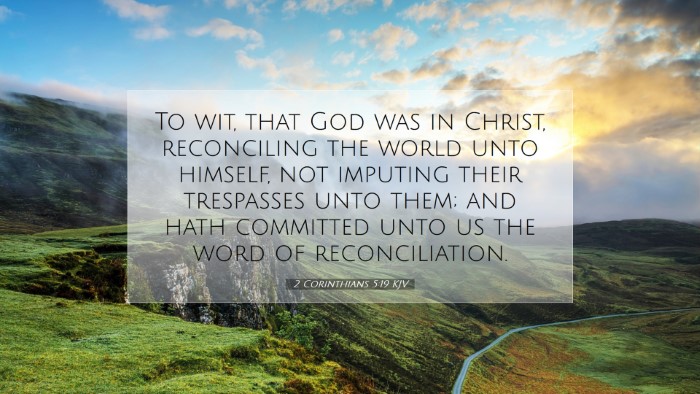Commentary on 2 Corinthians 5:19
Verse: "To wit, that God was in Christ, reconciling the world unto himself, not imputing their trespasses unto them; and hath committed unto us the word of reconciliation." (2 Corinthians 5:19)
Introduction
This verse serves as a cornerstone for understanding the doctrine of reconciliation within the Christian faith. The Apostle Paul articulates a profound theological truth: God's initiative through Christ in reconciling humanity to Himself. The public domain commentaries weaved together elucidate the depth of this reconciliation, emphasizing its implications for believers and the ministry of the church.
The Meaning of Reconciliation
Matthew Henry comments that reconciliation signifies a change of state and condition from enmity to peace. It denotes that God, who was offended by human sin, has taken the initiative to restore the relationship through Christ. The phrase "God was in Christ" indicates the divine mission rooted deeply in the incarnation, where God manifested in the flesh actively worked to restore harmony between Himself and humankind.
Albert Barnes notes that the work of Christ was not merely about theological principles; it represents God's comprehensive plan to negate the effects of sin in the lives of believers. He points out that Christ's atoning work on the cross does not only forgive sin but also removes the barriers that existed due to that sin, culminating in true reconciliation.
Not Imputing Trespasses
The latter part of the verse, "not imputing their trespasses unto them," is a powerful affirmation of God's grace. Adam Clarke emphasizes that this signifies God’s decision to not count or hold against humanity their transgressions. This illustrates God's magnanimous nature and invites believers to embrace grace fully. Clarke argues that through this one act, God lays the foundation for believers to extend the same grace to others.
The Ministry of Reconciliation
Paul transitions in this verse to the significant responsibility that believers have in light of their reconciliation. The verse ends with, "and hath committed unto us the word of reconciliation." This underlines the believer's role as an ambassador of Christ and a steward of the message of reconciliation. Matthew Henry insists that every Christian is charged to communicate this message, effectively becoming instruments through which God continues His reconciling work in the world.
- Purpose of the Ministry: The ministry of reconciliation aims to attract more individuals into a restored relationship with God.
- Universal Scope: Paul’s message is inclusive, extending beyond cultural and social barriers, emphasizing that "the world" includes all of humanity.
- Responsibility of Believers: Just as God was active in reconciliation, believers are called to embody this active participation in spreading the Gospel.
Theological Implications
The implications of 2 Corinthians 5:19 extend into multiple theological discussions on atonement, grace, and soteriology. Albert Barnes articulates that understanding reconciliation is pivotal for grasping the nature of sin and redemption. It implies that human efforts to attain peace with God are futile without recognizing His initiative through Christ. This foundational truth ought to inspire believers to appreciate their salvation and engage with it actively.
Applications for Pastoral Ministry
In pastoral contexts, the call to preach reconciliation is both a challenge and a privilege. Adam Clarke urges pastors to embody the spirit of reconciliation within their communities. The message is not merely to preach peace but to live it out, bridging divides within the church and the surrounding community. This requires a commitment to forgiveness, humility, and active engagement with those at odds with the church or each other.
Concluding Reflections
The enduring message of 2 Corinthians 5:19 is that reconciliation is a divine act initiated by God, meant to transform lives and relationships. The commitment to share this word of reconciliation rests heavily on the shoulders of all who declare the name of Christ. As believers, we are called to remember our position as ambassadors, conduits of the transformative grace that flows from reconciled lives.
Final Thoughts
Matthew Henry poignantly concludes that understanding our reconciliation is essential for our identity as Christians. By embracing this aspect of the gospel, we are enabled to foster reconciliation in our relationships, echoing the love and grace God has shown to us through Christ. May this profound understanding catalyze action in our communities, advancing the kingdom of God on earth.


